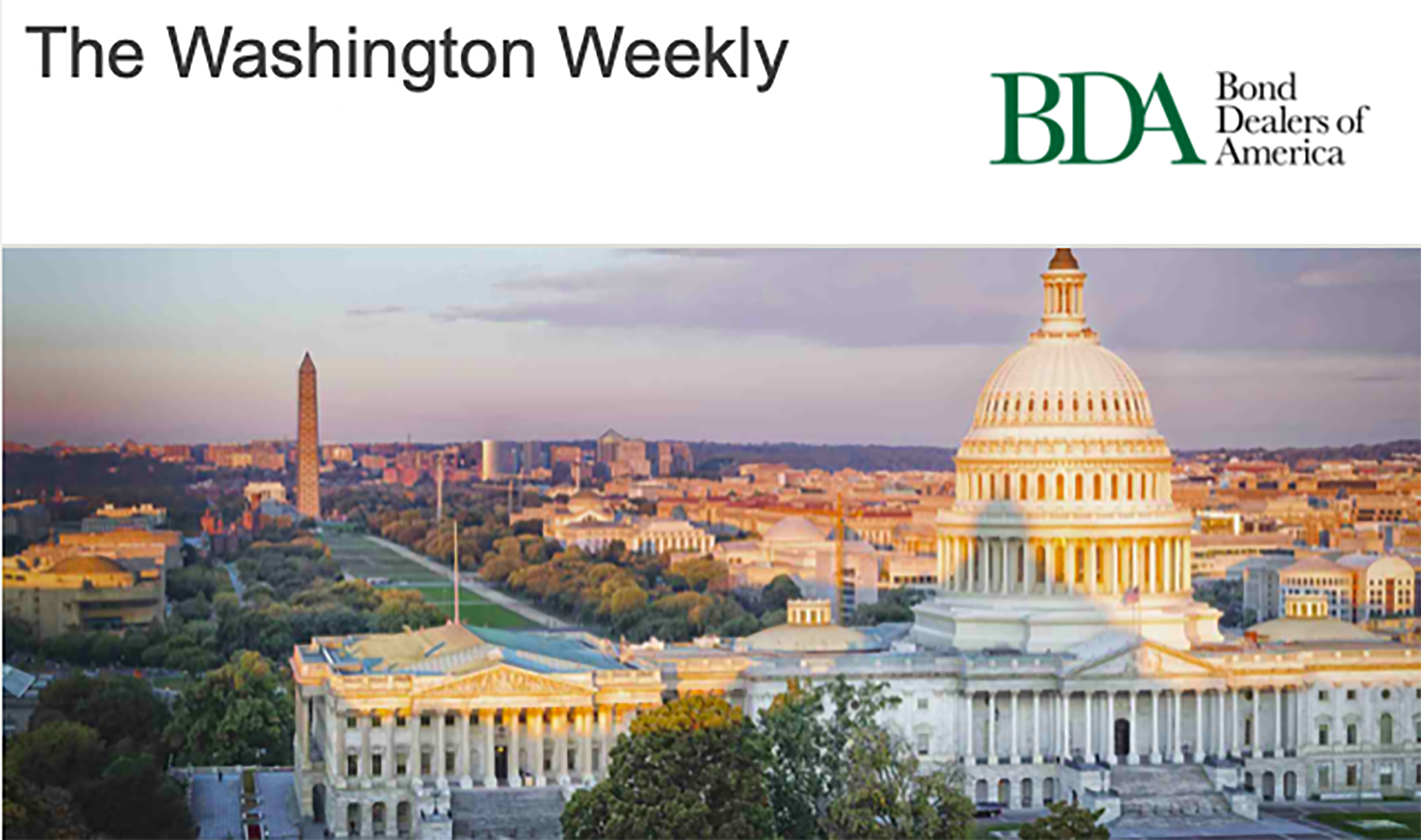
Yesterday, Senate Republicans offered another counteroffer to President Biden’s $2 trillion dollar infrastructure package. The counter includes $928 billion of infrastructure spending including $500 billion for roads, $98 billion for public transit, $46 billion for passenger rail, and more than $70 billion for water infrastructure and $20 billion for infrastructure financing-a show of support for key muni provisions.
However, much of this spending is not new spending, instead, the plan relies on nearly $700 billion of funding from the prior COVID relief package, money designated for use between 2022 and 2031 to help state and local governments, bolster coronavirus testing and expand the child tax credit-all likely deal breakers for Democrats.
While negotiators continue to work to find a solution, Senate Democratic Leadership may be shifting course in the short term on the size and scope of infrastructure spending for this year due to a budgetary time crunch. While details are still being worked out, at this time it seems that infrastructure may come in a 2 part legislative push-allowing the President to continue to pursue some bipartisan solutions, while planning for a more robust party-line package either later this fall or early in 2022.
September 30th will remain a crucial date no matter which path Congress decides to take on infrastructure spending this year. On that date, the Surface Transportation Reauthorization Act of 2021(or funding from the prior year to be extended) is required to be enacted as well the FY 2021 budget resolution has to be passed. This opens the door to a multi-part process:
- Use the highway reauthorization bill to try and get a slimmed-down bipartisan compromise on infrastructure; and
- Use the FY 2022 budget to pass the remainder of the 4+ trillion of the American Jobs Plan and the American Family Plan next year by a party-line vote.
We believe key muni bond provisions are well suited for passage this year. More on this below.
**New BondingTime DC with Tom Kozlik of HilltopSecurities. We discuss the American Rescue plan which provides $350 billion in unencumbered funding to state and local governments, and the growing potential this provides for a post-COVID economic boom. We also discuss lessons learned from the Great Recession recovery and how that is impacting current policy.
The podcast can be found here.
Muni Watch:
MBFA Submits Testimony Following Muni Hearings
Following hearings in both the House Committee on Ways and Means and the Senate Finance Committee, the MBFA has submitted written testimony in support of key muni provisions including:
- Restoration of tax-exempt advance refundings;
- Raise the BQ debt limit;
- Reinstatement of direct-pay bonds; and
- Expansion of PABs for ESG use.
The MBFA testimony can be viewed here.
These provisions continue to receive bipartisan and bicameral support in recent weeks, including throughout the recent hearings. MBFA and BDA priorities remain well suited for passage in 2021, however as noted above the timing, size, and scope of the eventual package(s) has yet to be decided. This remains a key priority for the Biden Administration, as well Democratic Congressional leadership to pass this year, and munis remain a strong bipartisan solution that is gaining traction on the Hill.
The LOCAL Infrastructure Act, which would fully reinstate tax-exempt advance refundings received ample support throughout both hearings, as did the expansion of PABs under the context of Public-Private Partnerships. Ranking Member Mike Crapo (R-ID) pressed the Committee to take actions to expand the use of PABs to encourage this type of arrangement, specifically for transportation and water projects citing the need for raising the $15 billion dollar cap for transportation projects.
However, much of the discussions were focused on the new BAB-like product, the American Infrastructure Bond (AIB). A bipartisan piece of legislation, the AIB would have a revenue nurtural reimbursement rate of 28% and be exempt from sequestration in the Senate and the House companion bill offers a high, but varied reimbursement rate while being subject to sequestration.
We continue to press Congress to exempt the new direct-pay AIB from sequestration.
